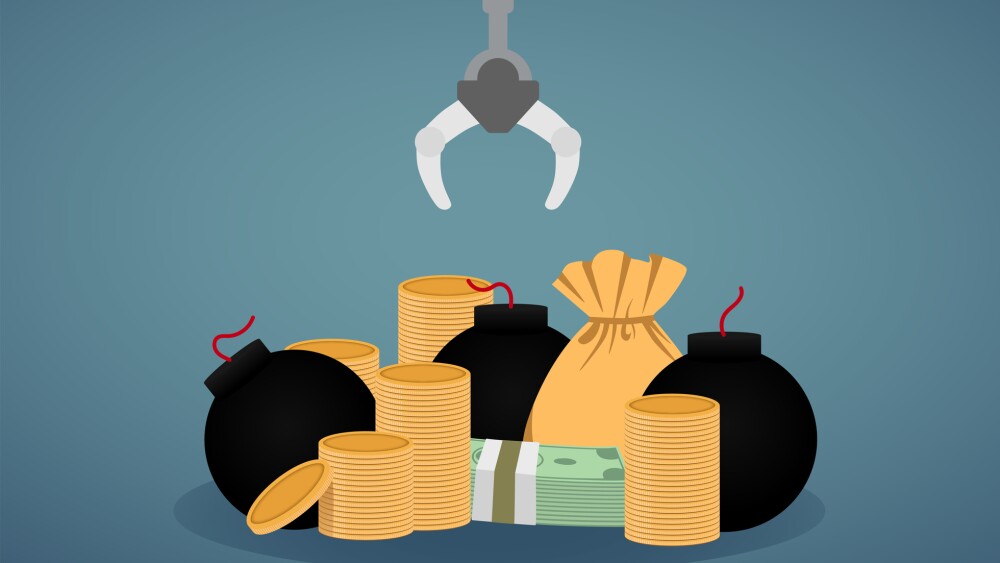After a slow 2024, the biotech shell company Concentra Biosciences is back, offering to buy four biotechs in the past month and seven so far this year.
The busiest buyer in biotech right now happens to be the most mysterious. Concentra Biosciences, the biotech buyout specter run by Tang Capital, has ramped up its dealmaking after taking things slow over 2024.
The shell company, which is run by mysterious investor Kevin Tang, has made bids to buy four biotechs over the past month and seven so far this year. Not all have been successful, with company boards popping the classic poison pill defense to ward off the unwanted advances.
Acelyrin and Pliant fought off offers from Concentra in March. Kronos Bio accepted a similar offer in May worth about $34.8 million. This month, Cargo Therapeutics accepted a $200 million buyout, as did iTeos.
Concentra does not hold on to these companies long. The intention is to close them, sell off the assets, return some cash to shareholders and reap whatever cash is left over. It’s a unique strategy in the biotech world but one that has plenty of fodder as the markets continue to batter the industry.
The action this year mirrors Concentra’s bustling 2023, when six offers were made. Just two were ultimately successful, however. The company earned a reputation that year as a biotech dark horse—swooping in with an offer for a struggling company as the walls closed in, with a plan of shutting it down and reaping the benefits.
Concentra’s pace is breakneck, with so many deals coming it’s hard to keep up with what has been successful and what ultimately failed. Kevin Tang did not return a request for comment as of publication, but recent regulatory documents filed from the slew of offers provide a window into the process.
In the case of Elevation Oncology, the documents show that Tang took over and removed the executive committee and officers as the deal closed. At iTeos, the deal notes reveal Tang and his company dropping into executives’ DMs to discuss a possible offer after a disappointing clinical trial.
A Failure and a Phone Call
On May 13, iTeos announced Phase II results from a study testing belrestotug and GSK’s Jemperli in patients with high PD-L1 non-small cell lung cancer. The combo showed clinically meaningful improvements in objective response, which was the main goal, but did not meet the secondary of improving progression-free survival. Therefore, the companies decided to discontinue development of belrestotug altogether.
Tang and his company saw the release, and days later, on May 15, disclosed in a Schedule 13G filing (which indicates a passive investment interest) its ownership of nearly 10% of iTeos’ shares. The Tang Capital team reached out to the biotech the next day to discuss the trial results—an unusual step as it’s typically positive results that garner investor interest.
A few weeks later, on June 2, an advisor for iTeos contacted Tang Capital to see if the firm might be interested in a potential transaction. Tang’s crew asked for more information, specifically clinical and financial details, to guide the decision. The two parties entered into a confidentiality agreement a few days later.
On June 11, the parties met in Boston, with iTeos’ management presenting an overview of the biotech. It took a day for Tang Capital to come up with an offer.
Tang and his company offered to buy 100% of iTeos’ equity for $10.25 per share in cash, which represented the projected difference between iTeos’ net cash balance at closing after the discharge of liabilities and the aggregate cash payment that shareholders would receive, namely 3% of $490 million. Shareholders would also be eligible for two contingent value rights (CVRs) if all went well, hinging on cash available at closing and sales of the biotech’s legacy products.
The first CVR would give shareholders all of the cash at closing that exceeded $490 million. The second granted them payouts should the iTeos team develop a new company for the legacy assets with a capital raise of at least $20 million.
Later that same day, Tang filed a Schedule 13D with the SEC, suggesting an activist position in the company. Over the next few weeks, Tang Capital conducted due diligence.
Tang Capital’s proposal was revised on June 26, edging the per-share price up to $10.36. Representatives for iTeos indicated a readiness to proceed with negotiating the transaction. The biotech’s executives suggested that the NewCo CVR be scrapped in favor of a structure that provided shareholders with 80% of the proceeds from the licensing, sale or other disposition of the assets instead. The company believed this simpler structure would provide greater certainty on the execution and timing of the transaction.
After Tang Capital’s due diligence, the proposal was revised downward to $10.05 per share payable at closing. Tang’s group agreed to the new CVR proposal.
Other negotiations included extending the legacy products CVR term to 10 years after the merger to allow greater certainty that shareholders would receive a payout.
The deal was sealed on July 18, with iTeos issuing a press release announcing the transaction.
Concentra offered a swift resolution after the clinical data just didn’t pan out for iTeos. Unfortunately, as the industry continues to reel, there could be plenty more companies ripe for similar transactions, meaning Concentra is providing a service uniquely suited to this moment in time for the industry.






